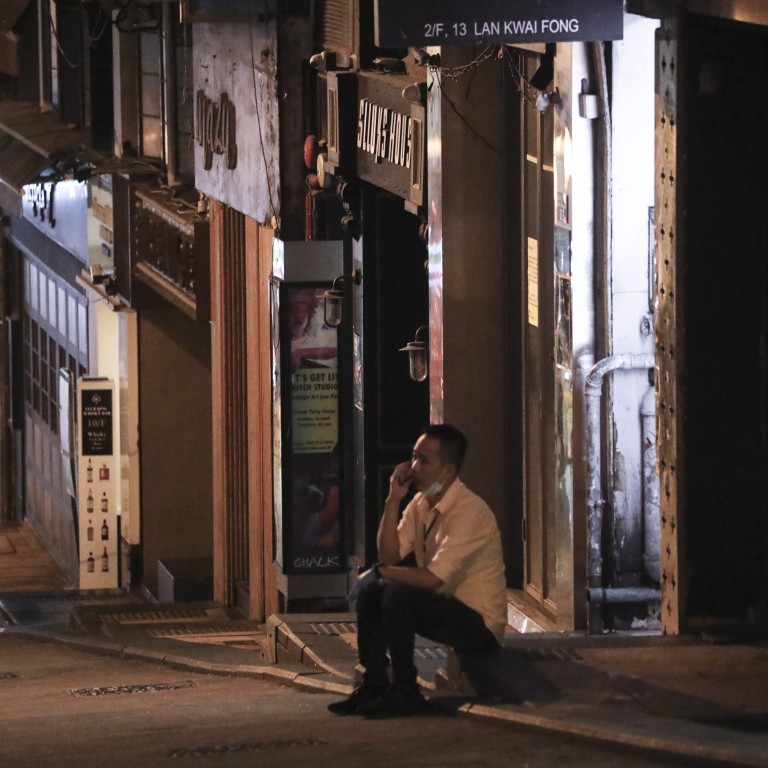
The data on global coronavirus-related trade and job losses is grim, but the worst is yet to come
- The ILO estimates 6.7 per cent of working hours, or 195 million full-time jobs, will be lost worldwide in the second quarter of the year. This is why so many governments, including in Hong Kong, have taken radical steps to support workers
So it is not good news that the worst is yet to come, and might not be done with us until well into 2021.
The WTO says the crash in services trade, never captured as accurately as merchandise trade, will be even more severe. “These numbers are ugly,” says Roberto Azevedo, WTO director general.
As other economies panic, China can wait and design better stimulus package
The second report, from the International Labour Organisation, provides a sobering glimpse into why so many governments – including our own in Hong Kong – have taken such radical steps to support workers, pre-empt redundancies and avert the thousands of bankruptcies that will almost certainly be upon us soon.
The ILO estimates 6.7 per cent of working hours, or 195 million full-time jobs, will be lost worldwide in the second quarter of this year. Sobering US unemployment data released on Thursday – which show that 17 million Americans have in the past month applied for unemployment benefit for the first time – obviously lends strength to these estimates.
Clearly, some areas of work have not been affected: teachers, health workers, government employees, police and army officers, and people in power and utility companies will not suffer significantly.
Look at Hong Kong, and you see good reasons for local alarm. Our economy is built on exactly those sectors facing the grimmest challenges (the ILO says transport is another such sector). Clearly, moves by Carrie Lam Cheng Yuet-ngor’s administration to throw meaningful lifelines to large parts of the workforce have come not a moment too soon.
Coronavirus could leave the world an even more unequal place
Since there are 2.51 million households in Hong Kong, this means spending power in the community might fall by about HK$4.8 billion per month, or HK$14.6 billion per quarter.
Apply the same arithmetic to the US, where there are 129 million households earning a median household income of US$4,900 a month, and you find families losing US $329 per month in spending power – amounting to US$42.5 billion for the US as a whole, and US$127.5 billion for the quarter – not a small chunk out of the Congress-approved US$2 trillion rescue payout agreed two weeks ago.
Extend such arithmetic to the entire world, and one quickly sees why so many leading businesses are in a sweat about a protracted recession.
While the hope is that the world economy might quickly recover from this implosion, evidence suggests that recovery will be slow and that, as we emerge, much will have changed forever.
Will record global debt trump all other crises in 2020?
Out of the coming recession, government indebtedness is set to rise to record levels across the world, with no clear prospect of how debts will be managed back to sustainable levels. Lockdowns have also brought digital delivery of everything to the heart of many economies, with the imminent arrival of 5G platforms set to put this trend on steroids.
While lockdowns have brought down carbon emissions (by 60 per cent in Europe), can this be sustained, or will global warming accelerate as recovery begins?
Perhaps most important of all, can we summon the statesmanship to work together across the world to bring the pandemic under control, and manage an economic recovery? So far, the odds are poor. In the US, Trump seems set on blaming all around him.
David Dodwell researches and writes about global, regional and Hong Kong challenges from a Hong Kong point of view
Sign up now and get a 10% discount (original price US$400) off the China AI Report 2020 by SCMP Research. Learn about the AI ambitions of Alibaba, Baidu & JD.com through our in-depth case studies, and explore new applications of AI across industries. The report also includes exclusive access to webinars to interact with C-level executives from leading China AI companies (via live Q&A sessions). Offer valid until 31 May 2020.

